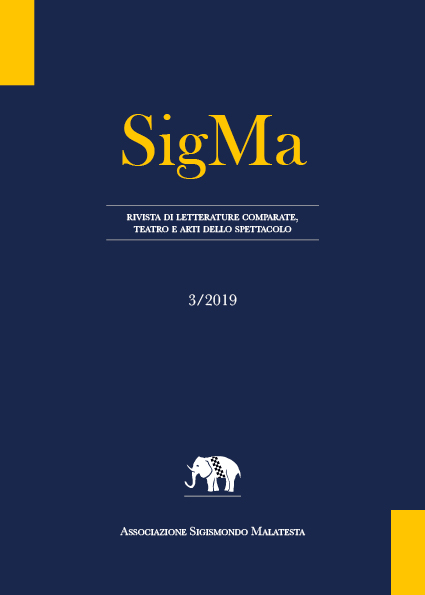Modello freudiano e contenuti storici: il codice d’amore cortese-cavalleresco tra “La Celestina” e il “Quijote”
Abstract
Col supporto di quella particolare configurazione del modello teorico di “formazione di compromesso” (F. Orlando) che è il Witz (S. Freud), il presente lavoro prende ad oggetto la concezione amorosa di due capolavori della letteratura spagnola della prima età moderna, La Celestina (1499) e il Quijote (1605-1615), allo scopo di mostrare come le due opere menzionate, a distanza di un secolo circa l’una dall’altra, presentino un fenomeno di reversibilità nel rapporto di comicità e Witz, nel senso che lo stesso contenuto storicamente determinato può fungere da momento della non-identificazione, comico e repressivo ne La Celestina, e fare da momento dell’identificazione col contenuto proibito e interdetto, ossia col represso, nel Quijote.
Downloads
SigMa pubblica in internet, ad accesso aperto, con licenza:
|
|
CCPL Creative Commons Attribuzione |
L'autore conserva il copyright sul suo contributo, consentendo tuttavia a chiunque "di riprodurre, distribuire, comunicare al pubblico, esporre in pubblico, rappresentare, eseguire e recitare l'opera", purché siano correttamente citati l'autore e il titolo della rivista. L’autore, al momento della proposta di pubblicazione, è inoltre tenuto a dichiarare che il contenuto e l’organizzazione dell’opera è originale e non compromette in alcun modo i diritti di terzi, né gli obblighi connessi alla salvaguardia di diritti morali ed economici di altri autori o di altri aventi diritto, sia per testi, immagini, foto, tabelle, sia per altre parti di cui il contributo può essere composto. L’autore dichiara altresì di essere a conoscenza delle sanzioni previste dal codice penale e dalle leggi speciali per l’ipotesi di falsità in atti ed uso di atti falsi, e che pertanto Reti Medievali è esente da qualsiasi responsabilità di qualsivoglia natura, civile, amministrativa o penale, e sarà dall'autore tenuta indenne da qualsiasi richiesta o rivendicazione da parte di terzi.

